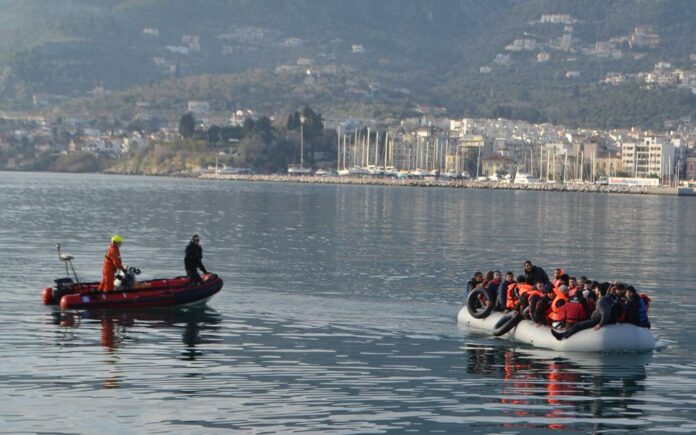Greek authorities have identified four NGOs based on the eastern Aegean island of Lesvos as actively engaged in migrant trafficking, by colluding with people smugglers operating from the opposite Turkish coast and even spying on Greece’s coast guard.
The allegations, bannered in a front-page article in Sunday’s conservative “Kathimerini” newspaper, stem from an undercover operation undertaken by the Greek intelligence service (EYP). Greek authorities relied on two foreign nationals sent to western Turkey to pose as would-be customers for one of the ubiquitous migrant boats that often set sail from the so-called Turkish “Riviera” for a handful of Greek isles.
The Kathimerini report cites classified information identifying 35 members of four NGOs as coordinating the travel and landing of illegal migrants and would-be asylum seekers on the Greek isles, especially Lesvos, via “illegal methods and procedures.”
The suspects are identified as citizens of Germany, France, Switzerland, Austria, Norway and Bulgaria, with two of the groups based in Berlin.
The clandestine operation was code-named Alcmene, named after the mother of the mythological hero and demigod Hercules, and carried out in mid August.
One of the more telling findings in the case reveals that the NGOs, who bill themselves as offering humanitarian support to undocumented migrants and would-be asylum seekers, rely on the AlarmPhone app. The latter is an emergency communication channel ostensibly used by boat migrants when in distress while crossing Mediterranean, although critics charge that such distress calls, by the illegal migrants themselves or the NGOs, are essentially a plea for a “pick up” by European countries’ coast guards and navies and delivery to European territory.
According to reports by Greek media, if the emergency calls are ignored or action delayed, then AlarmPhone cadres and NGO staffers take to social media to demand action and apply pressure.
Lesvos has borne the brunt of the migrant crisis that erupted in the Aegean in the spring of 2015, just months after the election of the radical leftist SYRIZA government in the country. Tens of thousands of would-be asylum seekers from Syria and Iraq initially landed on a handful of eastern Aegean islands after first setting off the Turkish coast by boat, usually flimsy inflatable craft. The migrant flows reached into the hundreds of thousands before the year ended, when Greece’s northern borders were sealed by states further to the north along the initial “corridor” to central and western Europe.
Besides people from war-ravaged parts of the Middle East, the months-long “open border” policy attracted would-be asylum seekers and foreign nationals from as far away as Congo, to Somalia and Burma, with tens of thousands of Afghans subsequently accounting for the largest bloc of undocumented migrants over the past few years.














